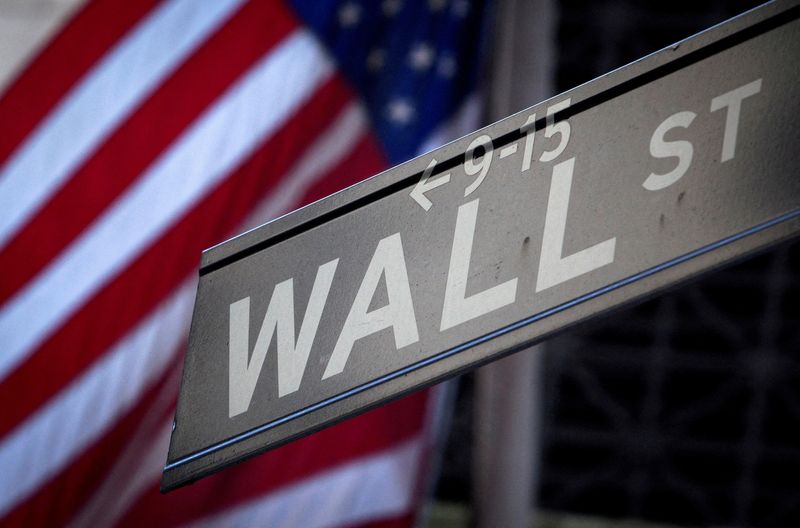By Jamie McGeever
ORLANDO, Florida (Reuters) -Hedge funds remain unconvinced by Wall Street's recovery from the March banking shock and have instead amassed their biggest bet in over a decade that the S&P 500 will fall.
Commodity Futures Trading Commission (CFTC) data for theweek ending Tuesday, April 18 show that funds and speculative accounts increased their net short position in S&P 500 index futures by 36,645 contracts to just over 680,000 contracts.
That is the biggest net short position since October 2011, and marks the fourth week in five that funds have increased their bet on weaker U.S. stocks.
A short position is essentially a wager that an asset'sprice will fall, and a long position is a bet it will rise. Hedge funds take positions in futures markets for hedgingpurposes so the CFTC data is not always reflective of purely directional bets. But it is a pretty good guide.
The latest doubling down from hedge funds comes as the first quarter U.S. earnings season kicks into gear. It has been a mixed bag with almost a fifth of the S&P 500 firms having reported.
Some 76% have posted earnings beats and 65% have registered revenue beats, but estimates were low to begin with.
What's more, the consensus forecast is still for a 4.7% fall in first-quarter earnings, according to IBES data from Refinitiv, which would confirm an "earnings recession" of two consecutive quarters of earnings contraction.
Earnings are likely to drive market sentiment and direction in the coming week, with 'mega tech' firms like Alphabet (NASDAQ:GOOGL) and Microsoft (NASDAQ:MSFT), as well as Amazon (NASDAQ:AMZN), scheduled to report their results.
In some ways, funds' bearish outlook is justified. The economic data is mixed - Citi's U.S. economic surprises index last week slid to a two-month low - uncertainty around banking stress persists, and debt ceiling worries are bubbling up.
Goldman Sachs (NYSE:GS)'s equity strategy team led by David Kostin expects the S&P 500 will end the year at 4000, implying a small decline of around 3% from current levels.
But the market refuses to buckle. The S&P 500 has rebounded nearly 10% from the March banking shock lows, and if the options market is any guide, traders are sanguine about the near-term outlook.
The VIX index of implied volatility - the Wall Street "fear index" - last week hit its lowest since November 2021. Not only that, at around 16.7 it is below the long-term average of any time since the index was launched in 1990.
There are plausible explanations for this resilience.
Bank of America (NYSE:BAC)'s latest fund manager survey showed U.S. equity allocation in April at a net 34% underweight, up from March but still among the most bearish positions of the past 20 years and 1.5 standard deviation below its long-term average.
Hedge funds are also their most gloomy in years. Perhaps the bearish positioning is simply overdone.
Diane Jaffee, lead portfolio manager at TCW, thinks so. While stocks' attractiveness relative to bonds has diminished, they still offer better returns.
"Plus you have the potential for earnings growth. Equity investors should be thinking in multiple years, not just this year," Jaffee said.
(The opinions expressed here are those of the author, a columnist for Reuters.)
Related columns:

Evaporating equity risk premium herds funds to bonds
Markets won't give up the ghost
(By Jamie McGeever in Orlando, Florida; Editing by Christopher Cushing)